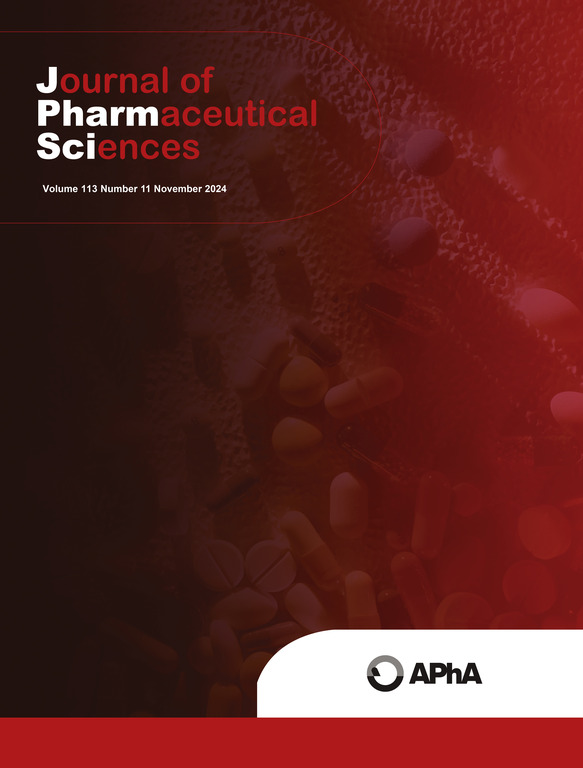人胰岛素固态降解动力学:温度和湿度影响的研究。
IF 3.7
3区 医学
Q2 CHEMISTRY, MEDICINAL
引用次数: 0
摘要
随着口服肽类药物剂型的不断发展,全面了解影响肽类药物固态稳定性的因素至关重要。本研究使用人胰岛素作为模型肽,研究温度和湿度对其固态稳定性的个体和相互作用影响。胰岛素在温度(25°C、40°C和6°C)和湿度(1%、33%和75%)下保存6个月。主要降解途径为脱酰胺和共价聚集。降解产物形成速率由经验确定,并使用湿度校正后的阿伦尼乌斯方程进行建模。温度对脱酰胺和共价聚集速率有主要影响,反应速率随温度升高而升高。湿度的影响与温度有关。水分引起的降解在25°C和40°C时最小,但在60°C时是一个重要因素。动态水蒸气吸附分析确定了胰岛素在60°C时相对于25°C和40°C时吸湿特性的明显差异。研究结果表明,水分对胰岛素脱酰胺和共价聚集率的影响不是水分含量的函数,而是胰岛素与水分相互作用的性质。本文章由计算机程序翻译,如有差异,请以英文原文为准。
Kinetics of human insulin degradation in the solid-state: An investigation of the effects of temperature and humidity
With the increasing development of oral peptide dosage forms, a comprehensive understanding of factors affecting peptide drug stability in the solid-state is critical. This study used human insulin, as a model peptide, to examine the individual and interactive effects of temperature and humidity on its solid-state stability. Insulin was stored at temperature (25 °C, 40 °C, and 6 °C) and humidity (1 %, 33 % and 75 %) over 6 months. Primary degradation pathways were deamidation and covalent aggregation. Degradation product formation rates were determined empirically and modelled using the humidity-corrected Arrhenius equation. Temperature had a major impact on deamidation and covalent aggregation rates, with the reaction rates increasing with temperature. The effect of humidity was temperature dependent. Moisture induced degradation was minimal at 25 °C and 40 °C, but an important factor at 60 °C. Dynamic vapour sorption analysed determined a clear differences in insulin moisture sorption characteristics at 60 °C relative to 25 °C and 40 °C. The findings suggest that the effect of moisture on insulin deamidation and covalent aggregation rates was not a function of water content but the nature of the insulin moisture interaction.
求助全文
通过发布文献求助,成功后即可免费获取论文全文。
去求助
来源期刊
CiteScore
7.30
自引率
13.20%
发文量
367
审稿时长
33 days
期刊介绍:
The Journal of Pharmaceutical Sciences will publish original research papers, original research notes, invited topical reviews (including Minireviews), and editorial commentary and news. The area of focus shall be concepts in basic pharmaceutical science and such topics as chemical processing of pharmaceuticals, including crystallization, lyophilization, chemical stability of drugs, pharmacokinetics, biopharmaceutics, pharmacodynamics, pro-drug developments, metabolic disposition of bioactive agents, dosage form design, protein-peptide chemistry and biotechnology specifically as these relate to pharmaceutical technology, and targeted drug delivery.

 求助内容:
求助内容: 应助结果提醒方式:
应助结果提醒方式:


